In July 2022, Papua New Guineans will go to the polls for the tenth time since Independence in 1975 to elect the members of a new national parliament. Past experience suggests that more than 40% — and possibly as many as 50% — of the sitting members will lose their seats at this next election. Why is it so difficult for incumbent MPs to keep their seats?
Observers of PNG’s political system have offered a variety of explanations for this high rate of turnover. Perhaps it is evidence of a vibrant democracy, or the inability of a small number of wealthy and influential families to consolidate their hold on power, or the widespread popular dissatisfaction with the inability of successive national governments to deliver public goods and services.
PNG has a rich history of electoral studies that have sought to explain the outcomes of different elections in different electorates. These began with the first election to the House of Assembly established under the Australian colonial administration in 1964. Some of these studies can be downloaded from the website of the ANU’s Pacific Institute. Typically, this work was qualitative and based on case studies. In more recent years, quantitative work has become more common, and this includes a number of papers based on data from the PNG Election Results Database.
We have tried to take this analysis one step further in our recently published discussion paper. Here we have focused our attention on the eight elections that took place between 1982 and 2017, and on the 85 rural or partially rural open electorates, leaving aside the provincial electorates and the four wholly urban open electorates (in Port Moresby and Lae). That is because we wanted to see whether any of the geographical or institutional features of these rural electorates might help to explain why some of them have higher rates of MP turnover than others. In other words, we decided to treat the question of turnover as a question about the differences between electorates, rather than a general question about the workings of the political system.
In doing so, we treated the geographical or institutional features of electorates, like population density or linguistic diversity, as factors external to the political system, and asked whether these factors had more or less influence on electoral outcomes than factors internal to the political system, like the number of candidates contesting each election or the number of votes that were cast.
While our evidence does show some broad variation in rates of MP turnover between PNG’s four regions, it also shows that there is greater variation within regions than between them, so it is reasonable to ask whether there are factors specific to each electorate that can explain why some have much higher rates of MP turnover than others.
Incumbent loss rates in rural open electorates, by region and electorate, 1982-2017

We did not find good evidence that any variables external to the political system had a significant effect on rates of MP turnover. For example, there was no relationship between the rate of turnover and the child mortality rate, which we took as a proxy for the level of social and economic development in each district. Likewise, there was very little relationship between the rate of turnover and the extent of linguistic diversity or fragmentation. If anything, the rate of turnover was lower in more diverse electorates, which might seem rather surprising.
We did find that MPs are more likely to lose their seats in electorates where average candidate numbers are higher and in elections where more votes are cast, so in that respect we might conclude that factors internal to the political system are more significant than factors external to it. But we found that the most significant of the factors that were able to be measured was the degree of ministerial power that MPs had managed to accumulate during the parliamentary term preceding each election. We measured this by scoring the relative importance of each ministerial portfolio and counting the number of months that each portfolio had been held by a particular MP. We found that MPs who had held senior portfolios for a substantial period were more likely to retain their seats, while those who had held junior portfolios were no more likely to get re-elected than other MPs.
In additional tests we were able to rule out the possibility that the relationship existed simply because MPs who had been in parliament longer were more likely to get more senior portfolios and also more likely to win their seats again. And we excluded the possibility that the relationship existed because MPs who won larger vote shares in the previous election were given more powerful ministerial roles.
Our findings suggest that the most significant factors in explaining the different rates of MP turnover in electorates are not features of the electorates themselves but the personal qualities of the MPs who get elected and then stand for re-election. In this instance, it is the capacity to accumulate ministerial power through the workings of the parliamentary system. This could either be related to the preference of voters for MPs who can acquire ‘big names’ on the national political stage, or to the way that senor ministers can use their portfolios to dispense more favours to their local supporters.
This finding is consistent with a number of observations made of outcomes of specific elections in specific electorates, and also with the findings of surveys that have been undertaken to discover what voters find appealing about the candidates for whom they cast their votes. Sitting MPs have several other personal attributes that might be related to this one, and might prove to be equally significant, like their personal wealth or their level of education. The same goes for the candidates who seek to unseat them.
Unfortunately, we are unable to obtain precise measures of these other personal attributes for all the MPs who have stood for re-election between 1982 and 2017, let alone for all the other candidates who have contested the elections, so we cannot proceed much further with this kind of statistical analysis. The different electorates may also have significant and relevant features that we have not been able to measure.
All we can say for the time being is that the occupants of senior ministerial portfolios in the current term of parliament have a better than even chance of getting re-elected next year.
Read the Devpolicy Discussion Paper by Colin Filer, Terence Wood and Henry Ivarature, ‘Why do so many MPs lose their seats in PNG?’.

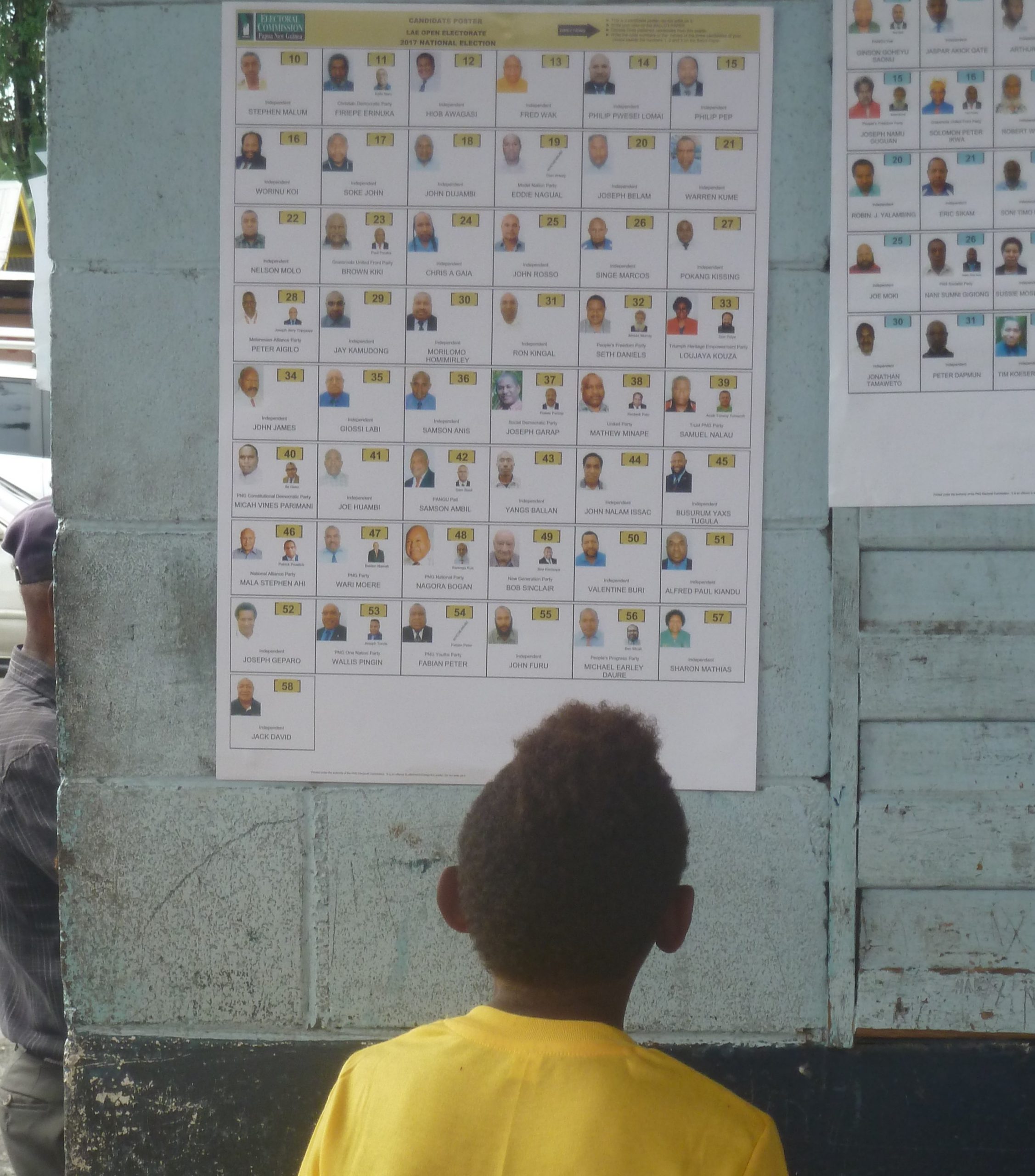
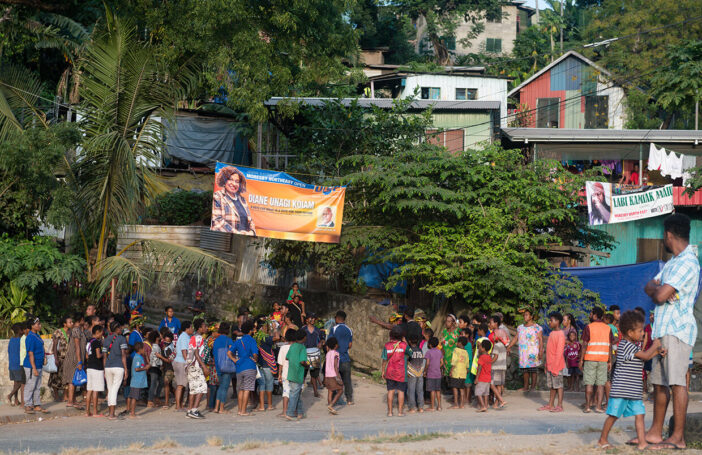
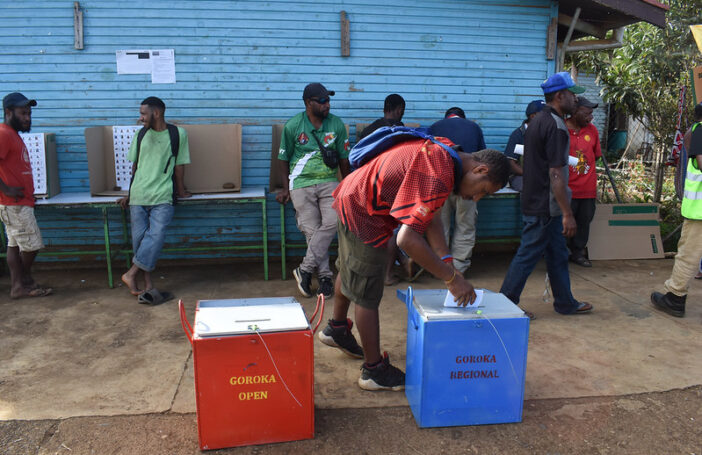
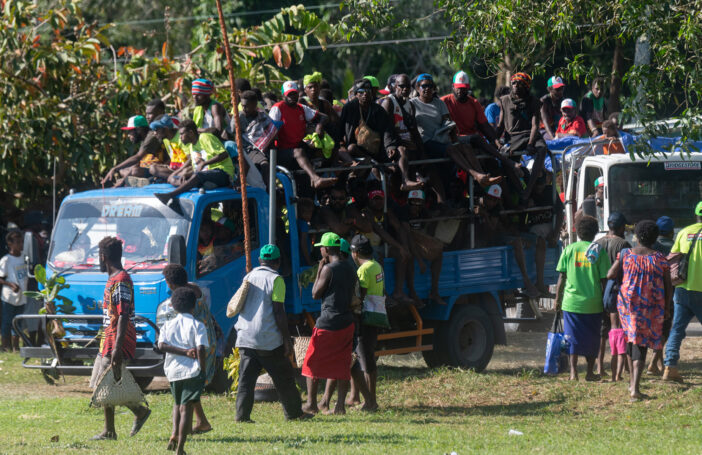

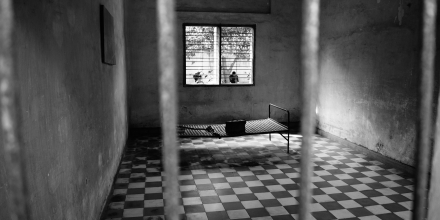

The authors say “There are no electorates for which we have detailed case studies that would enable us to assess the reasons why incumbents either retained or lost their seats in each successive national election since 1982” in the full discussion paper (p. 7). Well, no, but Joe Ketan and I explained what goes on in Hagen (1987) and Dei (1992) pretty clearly (refs in DP96). Because the issues in Hagen don’t change that much, and Dei only a little more, it would be probably rather tiring on the patience of readers to repeat our analyses election after election. Same plays, occasionally different actors.
Spoiler alert: electoral politics in Mount Hagen (even though Ketan’s paper was about Dei in 1997, he called his paper “Electoral Politics in Mount Hagen”) is to be read through the shifting coalitions of tribe and phratry structures that persist over centuries.
Of course, our style of presentation wasn’t to everyone’s taste. I remember the editor of the 1987 election volume saying he supposed there was a place for my analysis in it but that it wasn’t what he was expecting. I grudgingly got in as the last chapter …
Re-reading Ketan’s paper just now, I am transported back in time to the soundtrack of Hagen life, always on continuous loop, playing in the street, in the house, in the back of cars, everywhere three and four decades ago as today. Ketan writes “What appears to outsiders as bewildering makes perfect sense to Highlanders and one only needs to ask the people themselves”. For the way he writes, and I hope I cloned some of it in my study of the previous election, is this soundtrack!
I have to correct him on two points. “Highlanders” is too broad a category. We were discussing specifically Mount Hagen. Jiwaka is a bit different, Simbu different again, Eastern Highlands different again.
“One only needs to ask the people themselves” – not really. You can’t get a word in edgeways, let alone a question, for the constant stream of political gossip, speculation and corrective information for all to hear. Will so-and-so run? Who will give their block votes to whom? Which tribes will split because of internal strife? No, it can’t be that because (long explanation of history and tribal alliances follows).
Sorry we can’t help with the other 109 electorates …
A most timely analysis for the 2022 election. As I see it, the process seems mostly random with higher number of competitors determining chances of an incumbent losing his (not her) seat.
The Ministerial power variable seems to indicate substantial amount of departmental resources are diverted for electoral purposes.
Thanks Albert,
Candidate numbers are certainly correlated with MP re-election rates. This seems to be true if we’re talking about numbers of candidates in the election in question (David Hegarty’s old finding, which Maho and I have confirmed with more recent data too) and also on average, in all elections excluding the current one, which is the finding presented in this blog/paper. The possible explanations why are, I think, quite interesting.
The Ministerial power variable may well indicate departmental resources being diverted to electorates. However, the other explanation that Colin covers in the discussion paper, which is also an interesting possibility, is that the type of person well-suited to maneuvering themselves into a ministerial portfolio may also be the type of person well-suited to the hard task of winning elections.
Thanks again for engaging on this.
Terence